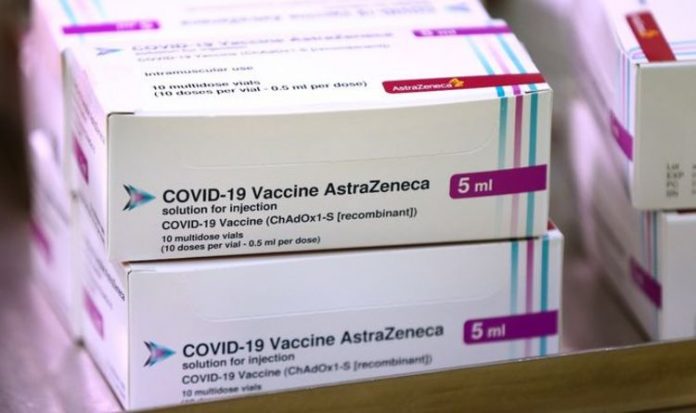Two vaccines have now been approved for use in the UK, sparking hope that the programme can be rolled out quickly so life can go back to normal as soon as possible. The UK has now been under the grip of coronavirus for almost a year, after the first reported cases emerged in February 2020.
Hope is on the horizon, however as this morning Brian Pinker, 82, was the first person to be given the vaccine in Oxford, in the same place the vaccine was developed.
Sam Foster, Chief Nursing Officer at Oxford University Hospitals NHS Foundation Trust, who administered the vaccine to Mr Pinker, said: “It was a real privilege to be able to deliver the first Oxford vaccine at the Churchill Hospital here in Oxford, just a few hundred metres from where it was developed.
“We look forward to vaccinating many more patients and health and care staff with the Oxford vaccine in the coming weeks which will make a huge difference to people living in the communities we serve and the staff who care for them in our hospitals.”
It marks yet another key moment in the fight against Covid-19, with the light at the end of the tunnel getting brighter for Britons who have been living under restrictions for almost a year now.
This means many people will not achieve full immunity for a long time but will acquire some protection from the virus in the meantime.
It has sparked worries with medical professionals as well as the public.
Pfizer has said it tested the vaccine’s efficacy only when the two vaccines were given up to 21 days apart, and the move has also been criticised by the British Medical Association.
However, deputy chief medical officer Prof Jonathan Van-Tam said the new dosing regimen will “save the most lives and avoid the most hospital admissions”.
He said: “If a family has two elderly grandparents and there are two vaccines available, it is better to give both 89% protection than to give one 95 percent protection with two quick doses, and the other grandparent no protection at all.
DON’T MISS
Covid vaccine near me: Where can I get the vaccine? Full list [EXPLAINER]
Coronavirus vaccine: Can you REFUSE to get COVID-19 vaccine? [INSIGHT]
Covid vaccine calculator: When will you get the Covid vaccine? [ANALYSIS]
“The virus is, unfortunately, spreading fast, and this is a race against time.
“My mum, as well as you or your older loved ones, may be affected by this decision, but it is still the right thing to do for the nation as a whole.”
Inoculations using the Pfizer/BioNtech vaccine began on December 8, with a million people now vaccinated in almost a month of the rollout – meaning if the speed at which people are being vaccinated does not significantly increase, there is little chance of life resembling normality again by this Easter.
Some have called for a 24-hour rollout of the vaccine as a way to get it out as soon as possible, but the Government does not currently have any plans for this.
Supply of the vaccine is also a key issue – although this should speed up now there are two to use, one of which does not need to be stored at extremely low temperatures.
The Times quoted what it described as a key member of the AstraZeneca team saying that one million doses will be ready next week.
They said: ”The plan is then to build it up fairly rapidly – by the third week of January we should get to two million a week.”
Another issue the NHS is dealing with is also the bureaucracy of signing up to be a volunteer vaccinator.
Those who signed up to become part of the workforce had to complete a barrage of seemingly unnecessary training, including anti-terrorism training.
Health Secretary Matt Hancock told BBC Breakfast: “We’re going to reduce the amount of bureaucracy that is needed there, and I’ve been working with the NHS on that.
“For instance, there’s one of the training programmes about needing to tackle terrorism.
“I don’t think that’s necessary, we’re going to stop that.
“And we’re going through the different parts of that process to streamline it as much as possible but again that isn’t the rate-limiting step.
“Because at the moment the NHS, with the people that it has got already, is able to deliver the vaccine as it can be produced, but obviously I want to make that easier.”







